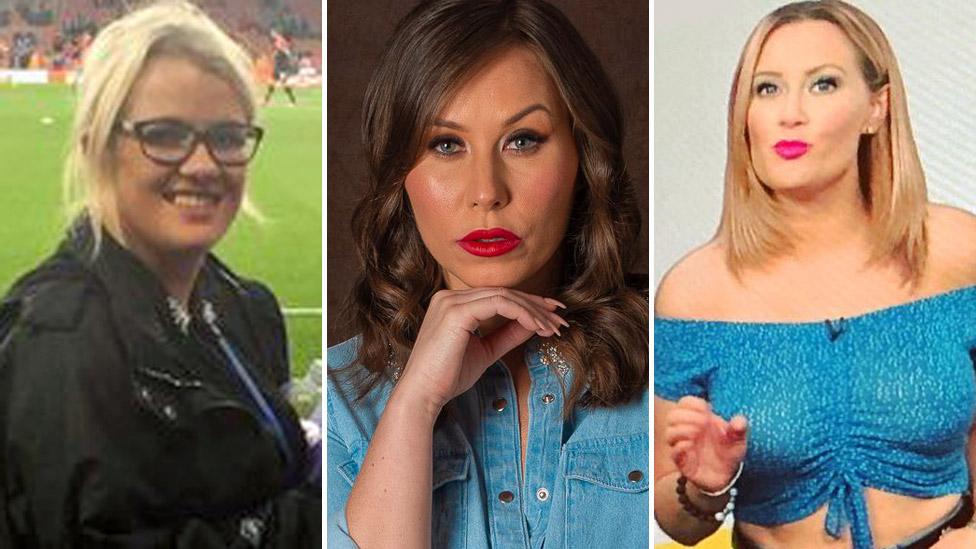Young filmmakers plot their way out of pandemic
- Published
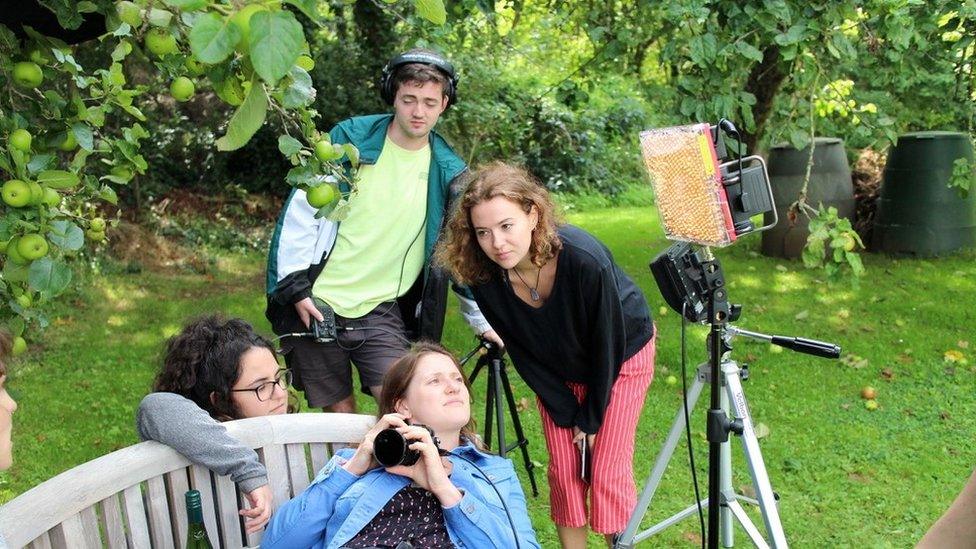
Raquel and Jasmin are working on a film script called Hard Bread
Filmmakers have been hit hard by the coronavirus pandemic and young people trying to enter the industry have found it particularly difficult. In Bristol there is a vibrant film scene, but what has happened during lockdown?
Film producer Jasmin Greenland should have been shooting her new film in Madrid this summer.
The film - Hard Bread - focuses on a mother-daughter relationship and was set in the Spanish capital in the 1970s, during the era of fascist dictator Franco.
The 24-year-old said: "We really wanted to film in Spain and wanted to make it feel authentic - the architecture, and the way the kitchens are laid out - that is only particular to that time and looks and feels like a European city."
But because of the restrictions on filming due to the coronavirus pandemic Greenland and screenwriter Raquel Grela have had to dramatically change how it looks.
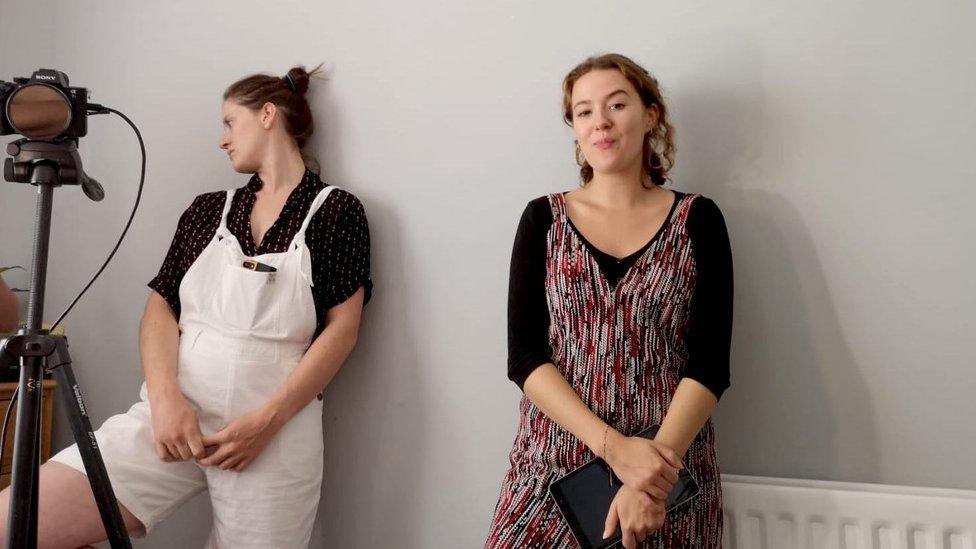
Greenland (looking at camera) said they had enjoyed reworking their latest film
"We went back into the script and reworked it so it was also set in England," said Greenland.
"We had protest scenes in the centre of Madrid and it would have been a big scene to shoot.
"We have had to rework it and add in different scenes to still have the same effect that we want but logistically make it simpler.
"Through doing that, and going back into the script, we've had a fantastic time editing, not just shooting Spain or England but delved deeper into our characters and relationships."
Greenland and Grela have been able to change the direction of their commission but for others trying to get a leg up in the industry it has been a tough time.
The Creative Industries Federation has said more than 400,000 creative jobs are set to be lost across the creative industries, which covers film, TV, theatre and live events.
The Film and TV Charity estimates that about 100,000 people in the UK work on a freelance basis in the industry, and 74% of them would not be eligible for government support.
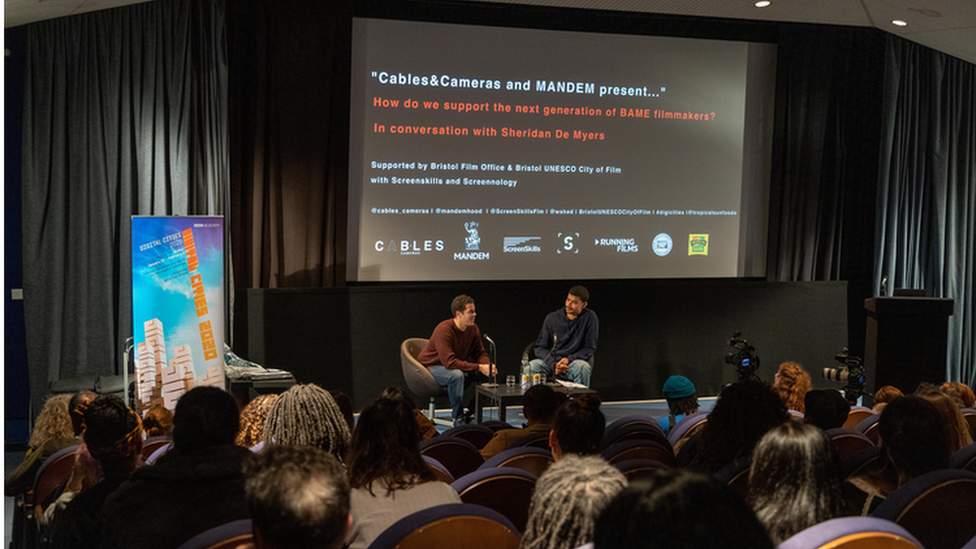
Gary Thompson has been holding film and networking events but he now wants to set up a training agency
It is now lobbying the government for extra support.
Alex Pumfrey, chief operating officer of the Film and TV charity, said: "We are very concerned about people who will have less financial resilience to weather this crisis.
"That's a real concern for us and for the industry as a whole.
"We know we need young, exciting diverse talent coming into the industry in order to sustain us over the longer term so the risk of losing those people is very grave."
Freelancer, Owain Astles, graduated last year.
The 24-year-old said: "The majority of my work has been cancelled or postponed.
"I work with various charities and social enterprises and it also means anything that was independent and publically funded, has been postponed.
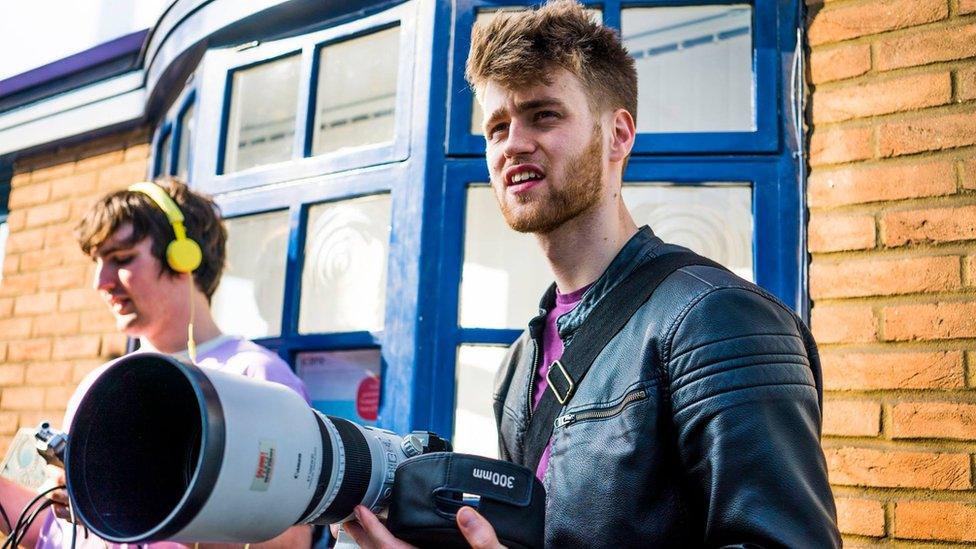
Owain Astles has been freelancing for just under a year
"There is a large amount of disappointment, particularly when a lot of things were going well and luckily with the arts project we got to post-production when the crisis hit."
He is excluded from any government Covid-19 support as he has been self-employed for less than a year.
"I know a lot of people who are having to move back in with parents, and partners' families even, that applies to lots of creatives. They've been very hard hit."
Amy Genders from the University of the West of England (UWE) has studied the role freelancers play in the TV and film industry.
She said her research, published in November, showed a 50-50 split in union membership among freelancers, but the pandemic could see them becoming more popular.
She said: "In terms of unions, this might shift a bit.
"Freelancers might see how unions will be relevant to them, as they saw how unions advocated on behalf of them during the pandemic.
"Sometimes it takes crises like this which highlight the cracks and the issues in the system."
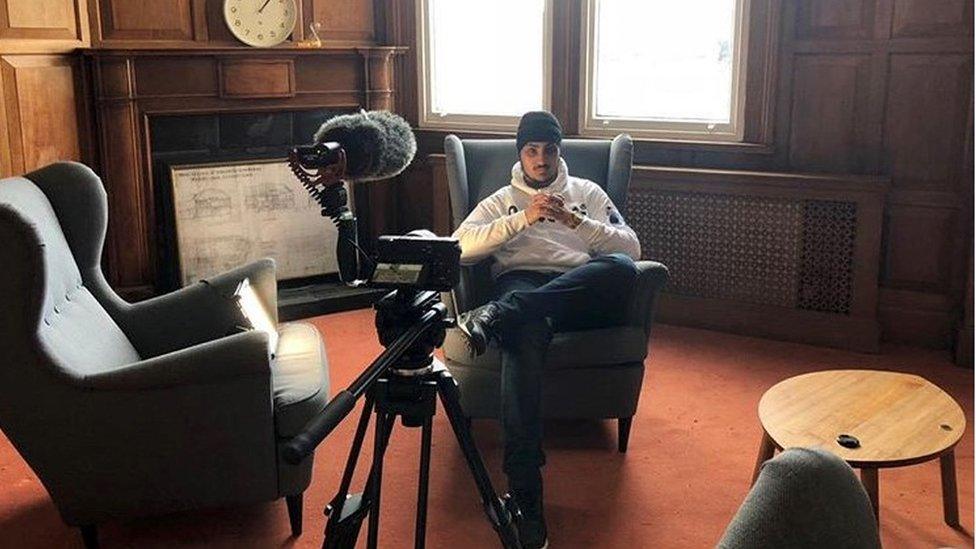
Gurpreet Singh is an aspiring Bollywood actor and plans to start his film studies degree in September
This month a major networking and showcase event for young filmmakers - particularly those from black and minority ethnic (BAME) backgrounds - was due to take place at the Watershed in Bristol.
Gary Thompson, who runs Cables and Cameras, had to cancel the event due to the pandemic.
His company aims to help newcomers and those from BAME backgrounds break into the filmmaking industry.
"Bristol has got a lot of production companies and a lot of talent but they don't seem to be reaching out too much with BAMEs," he said.
He has lost most of his income during the lockdown and instead has been holding Zoom film events and graphic design commissions. And he aims to set up a training agency.
"Some production companies are not sure how to recruit. We are not hiding.
"Last year I screened about 50 shorts from BAMEs around Bristol and the UK and that's new talent, so I want to keep on pushing that," he added.
But film student Gurpreet Singh, 19, said he didn't expect the pandemic to effect his long-term plans.
"When I'm at uni I'll be making films in English and Hindi.
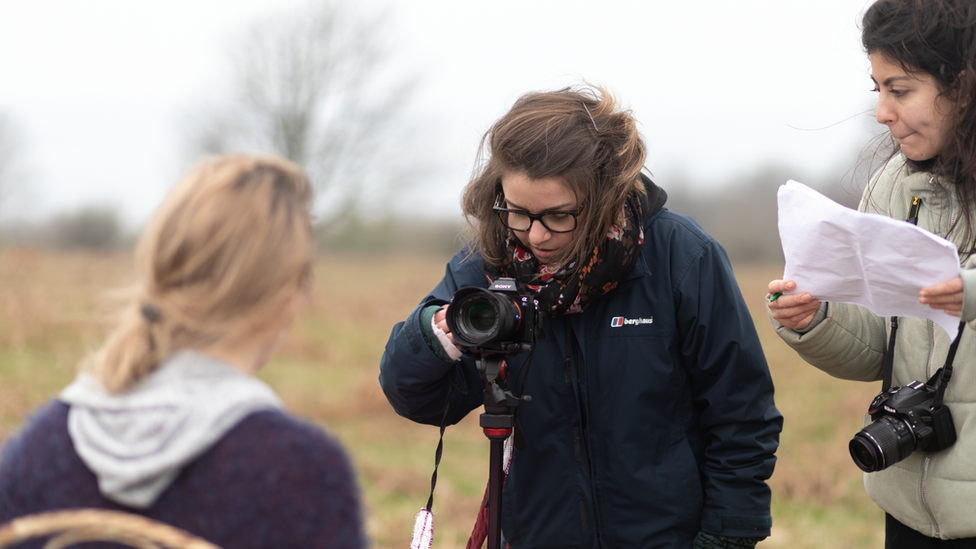
Hannah Silver has been focussing on her script writing since lockdown
"I've grown up watching Bollywood films - watching all the action, the heroes and songs - so I plan to move there and work in the industry.
"A lot of people from India come to the UK to study film, so I do feel positive that I can make my way as a Bollywood actor."
Filmmaker Hannah Silver is also positive, despite having to pull out of working on Hard Bread with Greenland and Grela.
"During lockdown, what I found myself doing and enjoying was writing.
"It reminded me that that was the thing that I love and just to let myself do that in my free time now rather than setting myself deadlines to doing a production," she said.
Last summer Hannah released her first feature film House of Bricks which was shown at the Hollywood Women's Festival.
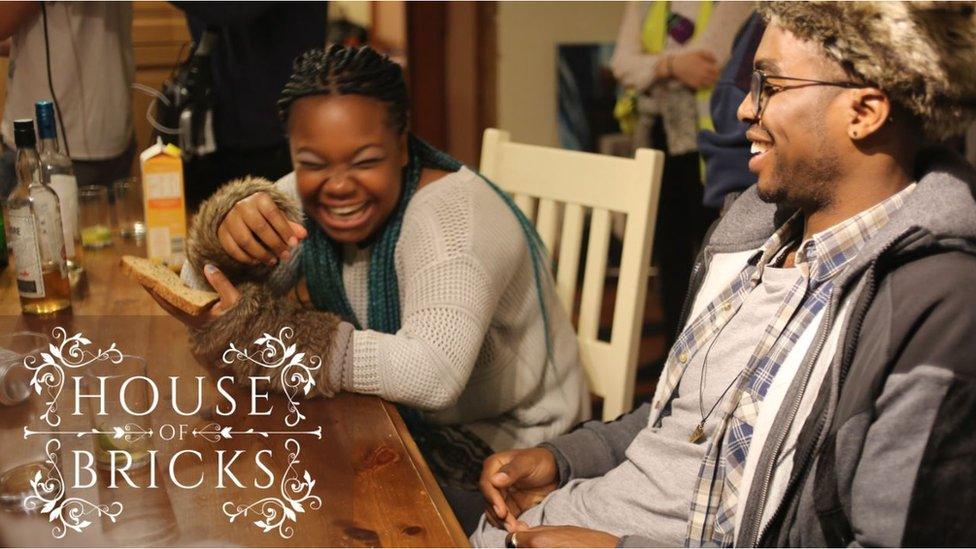
Hannah had entered her House of Bricks film into various film festivals but they were cancelled due to the pandemic
It was due to be entered into other film festivals this year but that did not happen.
Despite the setback she said that "feedback and conversations" about the film's subject matter was the "most validating" aspect of film-making.
And she had advice for those trying to enter the industry during this challenging period.
"If you're able to just start making, then do it because the best way to learn is to just start - most people have got cameras on their phone.
"The first things you will make will be awful, but it will get better," she said.
"The people who get there are the ones who didn't give up."
- Published15 June 2020
